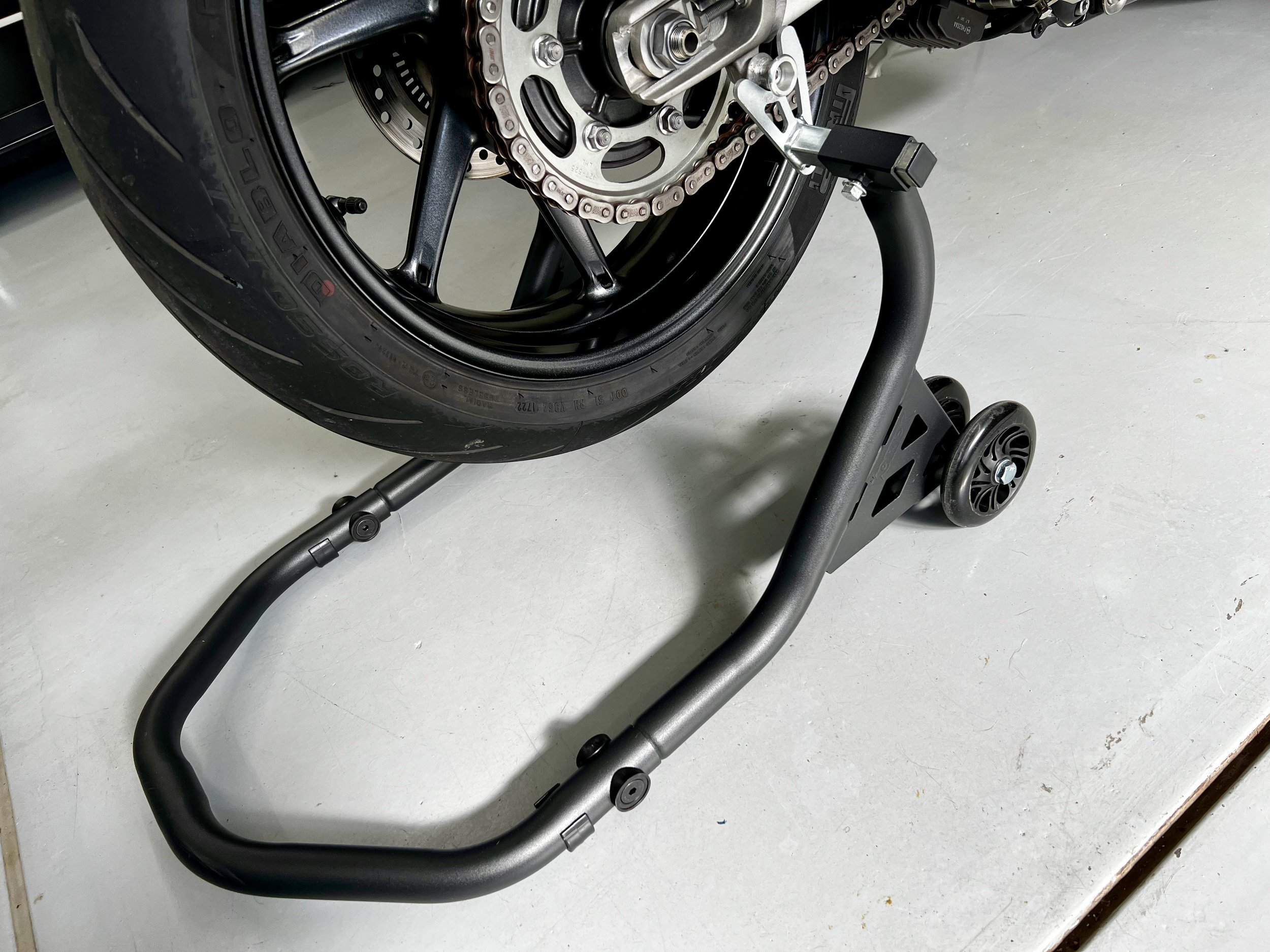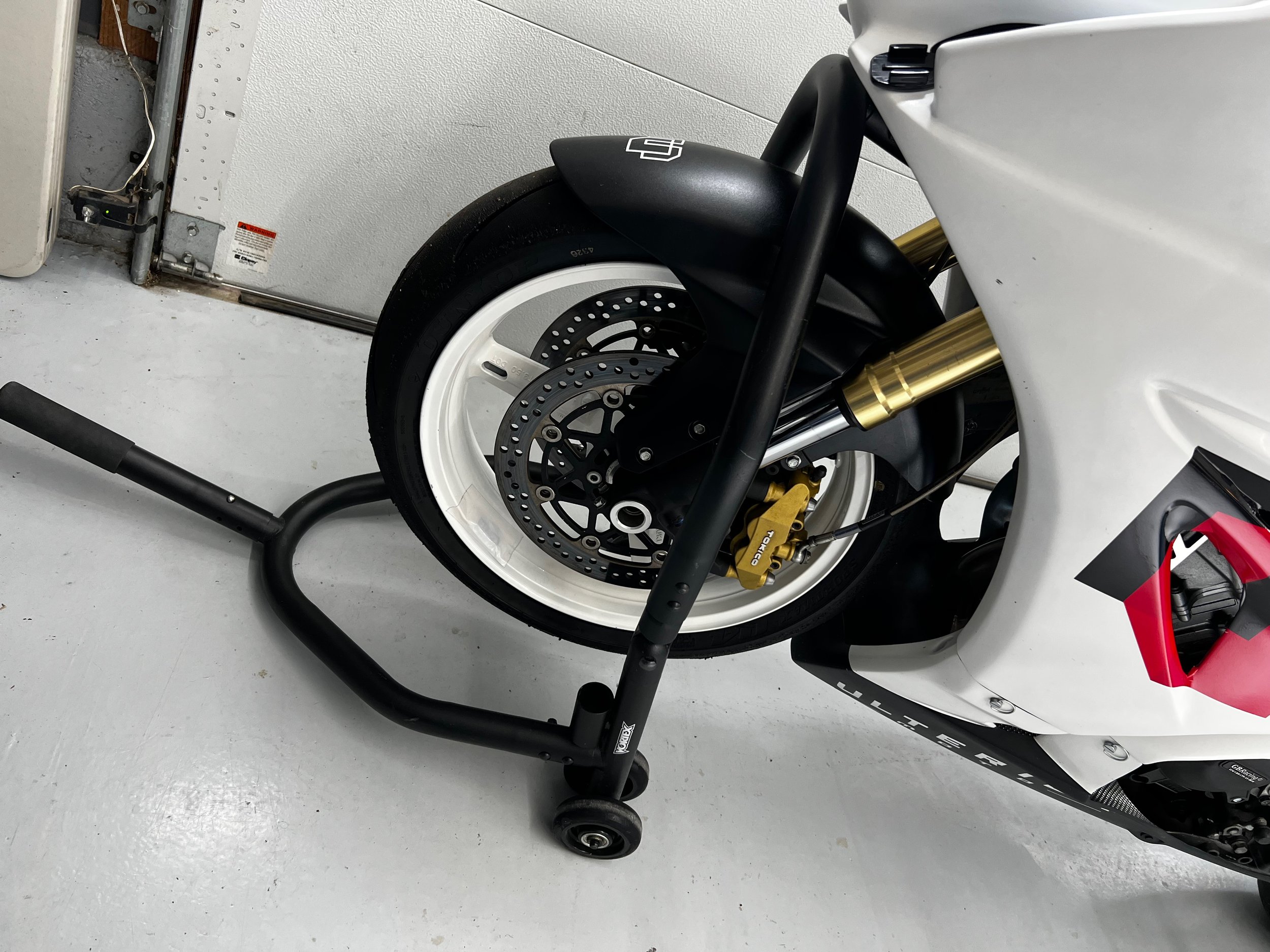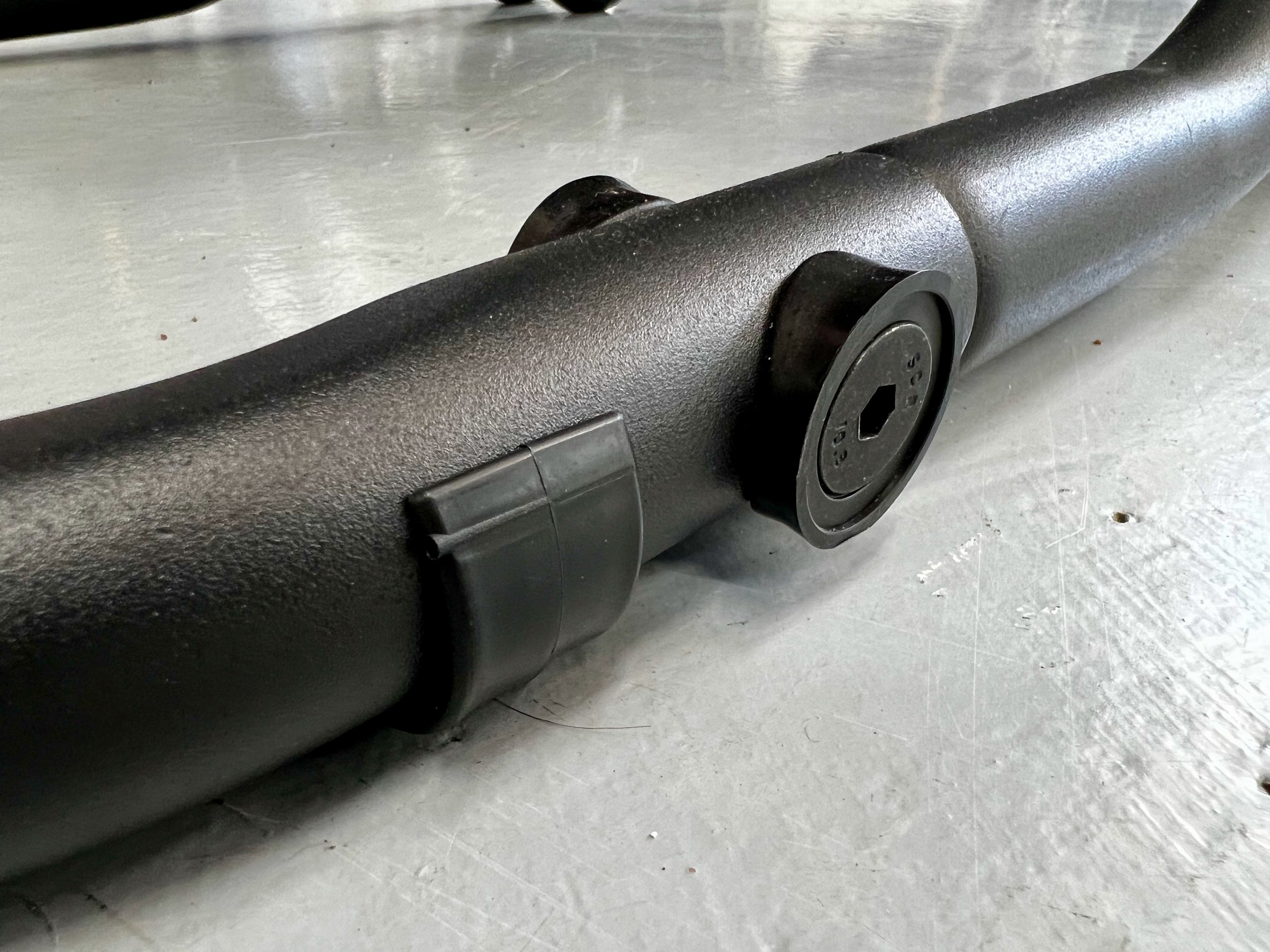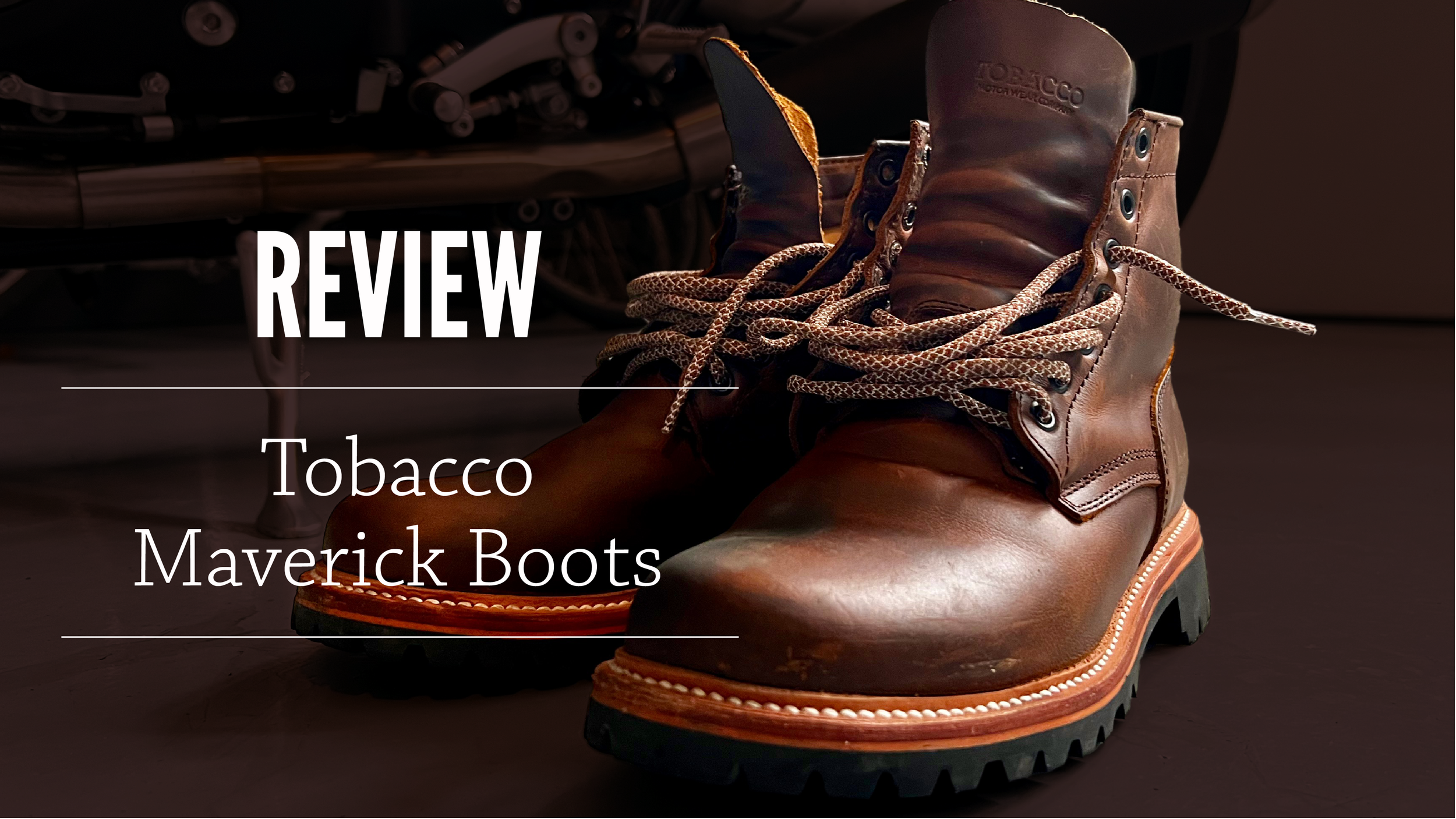Vortex Rear Stand Assembly and Review
Maybe you’ve purchased a $100 rear stand and you’ve had enough of its clunky delaminating wheels, or better yet you’re resisting the urge and doing your due diligence. I have succumbed to the temptation of the seemingly similar item and regretted it—not initially, but eventually. I finally changed all that and ponied up—not considerably more—for a Vortex rear stand. Here’s how it the assembly and use went.
Our Experience with Vortex
I have had a front stand by Vortex for ages, so I know how useful and durable their stands are. I also use their racing gas cap on my track bike and wouldn’t hesitate to use their rear sprockets either. For just $50 more than the “equivalent” bargain brand, or even less on sale, I didn’t hesitate to purchase mine when I simply couldn’t stand another day clunking around on the dry-rotted wheels of my old stand.
Inspecting the parts
I were impressed by the size and construction of the wheels. When a stand’s wheels are too small, they will catch on surface imperfections and bring your progress to a halt, or worse yet, unexpectedly drop your bike off the stand. That won’t be a problem here as these measure nearly 4.5” in diameter. My old stand’s wheels were only 3” new and once the rubber dried out and fell off, more like 2.5”.
The construction uses reasonably thick 0.700” wall tubing with a durable satin black finish. Branding is discrete. There are no stickers applied to it whatsoever. Only the debossed brand name on the wheel supports gives away its source. Plastic clips are snapped to the hoop portion to minimize drag when repositioning the bike. Hardware included assembly screws with thread locker pre-aplied and molded plastic washers.
Assembly Ups and Downs
As you may have seen from the video, assembly was pretty straightforward. The Vortex stands come flat packed to save on shipping, so you will have to assemble them, but its money well saved in my estimation.
I began with connecting the legs to the hoop. The tapered end of the legs slid into place inside the ends of the hoop easily, with minimal free play. Placing the screws through the washers and lining up the threads was not a problem. Everything lined up properly.
Things were going smoothly until I got to the final phase; attaching the spool adapters. This problem would also rear its head months later. Like most rear stands, this one is adjustable for width to accommodate most any bike. I measured the spool width center-to-center, which fortunately for me is identical for both the SV and the Speed Twin at 12.5”. I slid the adapters into their square stock receivers (admittedly in the wrong orientation the first time) and spaced and centered them accordingly. These parts are not specific to one side or the other, but be aware they should be angled slightly rearward when properly positioned. As I tightened down the set screw for the second of the spool adapters with a not-too-excessive amount of torque applied to the bolt, the welds holding the screw to one of the legs snapped off. This didn’t happen on the opposite side and any less torque wouldn’t secure the adjustable carriers so this was definitely a manufacturing issue.
Surprised and disappointed, I immediately contacted our seller, Sport Bike Track Gear to alert them to the situation. Justin replied promptly, simply asking for pictures of the parts I had received and of the defect. He had Vortex directly ship us a replacement leg for our stand. Ten days later I was back in business, with a properly welded attachment nut.





Using the Stand
Like many other stands, this Vortex unit does not feature a handle to give you extra leverage, or alternately to trip over when you’re walking around. Combined with what I would describe as possibly too much lift, the stand requires considerable effort to lift the bike. While the effort on the relatively featherweight SV track bike isn’t too unbearable, my Triumph Speed Twin proved pretty resistant to being lifted and its not exactly portly compared to most bikes. If your bike is on the heavier end of the spectrum or you are personally on the lighter end, you may want to shop around a bit. If your bike is fairly light and/or you can use all the ground clearance you can get, this Vortex unit should get your consideration. Those who use tire warmers may prefer the generous lift it provides. On our Suzuki with a 180/55/17 tire, the bike sits a whopping 4.5” off the ground.
I was never quite comfortable with the welded nut for the spool adapter, so I maintained minimal torque on the nut that keeps it in place. Time and time again the adapter would slide which complicated the whole process of lifting my bikes. Slowly but surely I added torque to the bolt to prevent this without over stressing the welds, but it turned out there was no happy medium. After seven months of use I had yet another weld failure at the spool adapter nut. At this point I’ve had enough.
Conclusion
I was generally happy with the new rear stand at first, despite its cons. While in general the construction, fit, finish and mobility were excellent the workmanship was subpar. I can’t recommend a product that continually breaks as this one has. Even if it wouldn’t have, the amount of effort to lift even a lightweight twin was getting old. The engineering and workmanship are not up to the standards of the Vortex brand. I have my sights set squarely on Woodcraft going forward.






